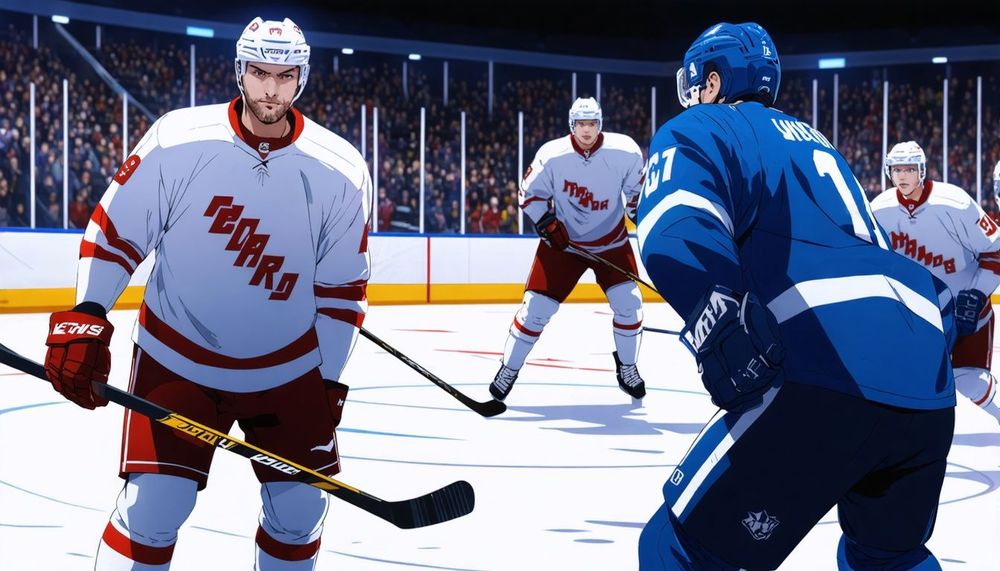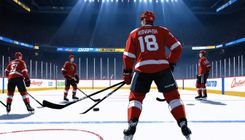Navigating Pressure: NHL Teams Facing Tough Decisions

In the NHL, pressure manifests uniquely across different teams. Some clubs focus on improving and potentially making the playoffs, while others carry the heavy burden of bewitching their fanbases with the prospect of a Stanley Cup victory. This pressure can feel varying intensities as the season progresses. The Florida Panthers have demonstrated a remarkable ability to reach the Stanley Cup Final in recent years, even securing the championship last season without undue difficulty. However, the pursuit of victory is inherently complex. For teams longing to advance to the Final and win their first championship, the stakes elevate significantly after each unsuccessful season, leading to challenging discussions about their future. This analysis highlights several NHL teams facing critical decisions as they pursue postseason success.
The Toronto Maple Leafs are at a crossroads. Despite rosters filled with talent, their inability to progress in the playoffs has left fans and management questioning the current strategy. This summer, the team parted ways with Mitch Marner after he opted not to resign with his hometown franchise—a significant blow considering his status as a top-10 player in the league. Nevertheless, the Maple Leafs retain elite talent, such as Auston Matthews, William Nylander, and an extended John Tavares. Yet a myriad of concerns looms large; the defense is aging, with questions surrounding Morgan Rielly's ability to anchor the blue line, while the health and reliability of goaltenders Joseph Woll and Anthony Stolarz remain uncertain. General Manager Brad Treliving's offseason moves suggest a shift to a more physical and competitive nature to match rivals like the Florida Panthers and Atlantic Division foes Ottawa and Montreal. However, failure to achieve playoff glory again could necessitate a reevaluation of the entire team structure, raising doubts about the long-term viability of some key players within Toronto’s competitive window.
The New York Rangers also actively recalibrated their roster during the past offseason. After what many perceived as an attempt to dismantle, it seems they have instead pivoted in a fresh direction under the guidance of new head coach Mike Sullivan. Despite the perception that parting ways with Chris Kreider and K'Andre Miller signaled a downshift, the strategy involved reallocating their financial resources. By acquiring players like J.T. Miller last season and signing defenseman Vladislav Gavrikov in the off-season, they are attempting to contend more effectively while maintaining a core featuring stars like Mika Zibanejad, Artemi Panarin, and Adam Fox. Goalkeeper Igor Shesterkin’s presence provides stability, ensuring the team remains competitive; however, with Panarin set to hit free agency next summer, another season without the Stanley Cup could precipitate significant changes within the organization.
The Los Angeles Kings have demonstrated competence in recent years, though they have continually faced the robust challenge posed by the Edmonton Oilers in the playoffs. After enduring consecutive playoff defeats to the Oilers, a shift was requested from new GM Ken Holland. Acknowledging the age of key players such as Anze Kopitar and Drew Doughty, Holland has focused on fortifying their defense Corps by acquiring veterans Cody Ceci and Brian Dumoulin. While younger talents like Quinton Byfield and Brandt Clark show promise, the transition of power has yet to materialize. Should the Kings struggle with age-related decline this season or fall short in the playoffs again, a reassessment involving the future of their aging stars may be essential for long-term success.
The Washington Capitals’ approach to free agency last year garnered contrasting interpretations across the hockey community. For some, their signings appeared desperate as a way to bolster the roster surrounding Alex Ovechkin to facilitate a return to the playoffs. Others perceived it as an effort to harness momentum gained from prior postseason experience. Notably, the addition of Jakob Chychrun provided crucial support alongside veteran John Carlson on defense. The Capitals ultimately enjoyed a successful regular season, securing the best record in the Eastern Conference under head coach Spencer Carbery. Nonetheless, as Ovechkin continues to age, the organization must carefully consider its strategy for a future without their superstar. Failure to replicate the season's success or advance to the Finals could necessitate adjustments in their personnel strategy.
The Dallas Stars are positioned as a team of intrigue heading into the upcoming season amidst speculation of considerable changes. Following a disappointing postseason, in which the Stars lost in the Western Conference Final for the third consecutive season, the front office made the decision to part ways with head coach Pete DeBoer. In his place, they reinstated Glen Gulutzan, which raises questions about how well he can galvanize a lineup that is still pursuing championship aspirations. A critical focus lies on Jason Robertson, the star forward who will be a restricted free agent next summer. Given the financial commitments already made to other key players, the Stars may face tough choices ahead. If the team once again fails to deliver in the postseason, management may entertain the prospect of trading Robertson as they reassess their roster dynamic.
Meanwhile, the Edmonton Oilers remain in a crucial phase of their competitive timeline. They came remarkably close to winning the ultimate prize two seasons ago but fell short in a heartbreaking seven-game series against the Florida Panthers in the 2024 playoffs. Although the pain of last offseason was slightly mitigated, the recent loss to the Panthers still highlighted the existing roster's deficiencies when matched against top-caliber competition. The road through the Western Conference has proven challenging; teams like the Kings and Stars consistently pose formidable hurdles. As speculation swirls regarding Connor McDavid's future with the Oilers, the stakes grow ever higher. If the team fails to secure the Stanley Cup or McDavid opts not to extend his contract, the path forward may indeed lead to considerable roster restructuring.









